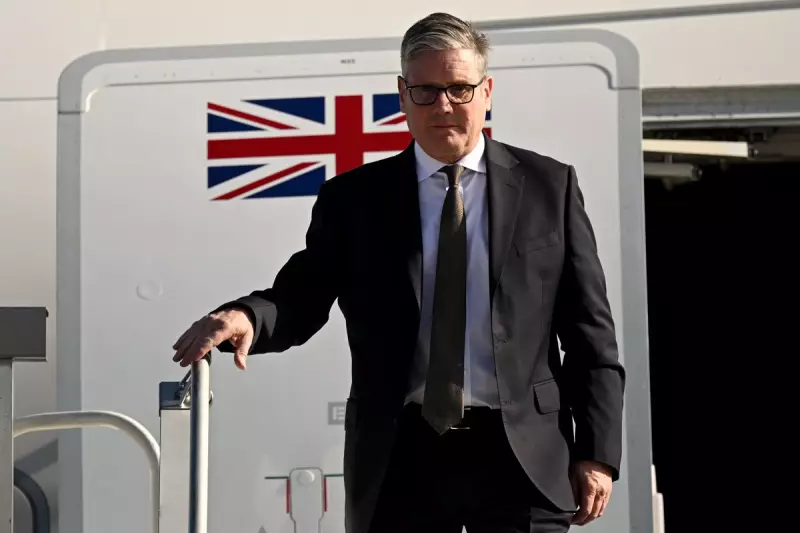
Prime Minister Sir Keir Starmer has pledged to "robustly protect" the United Kingdom's national interests amidst mounting speculation over a potential official visit to China and the pending approval of a new, controversial Chinese embassy in London.
Speaking at the G20 summit in South Africa, Sir Keir confirmed that no trip to Beijing has been finalised. He defended his government's approach, stating it is to "co-operate where we can and challenge where we must, particularly on national security."
Security Concerns and the 'Super Embassy'
The proposed new Chinese embassy, planned for a large site near the Tower of London and critical data cables, has raised significant security fears. Critics warn it could become a base for espionage activities.
However, a decision on the embassy, expected by 10 December, is reportedly set to be approved. According to The Times, the plan has been cleared by the UK's intelligence agencies, MI5 and MI6. The Home Office and Foreign Office are not expected to raise formal objections, provided specific "mitigations" are implemented to safeguard national security.
This security alert was highlighted just this week when MI5 issued a warning to parliamentarians about two alleged Chinese head-hunters, Amanda Qiu and Shirly Shen, who are suspected of using LinkedIn to recruit individuals on behalf of China's Ministry of State Security.
Government Assurances and Political Backlash
In response to the concerns, Defence Minister Al Carns sought to provide reassurance on Friday. He stated that if the embassy is approved, it would be "wrapped in the tightest possible measures" by the intelligence services to eliminate any threat to the UK.
This stance has not quelled criticism from political opponents. Shadow Foreign Secretary Dame Priti Patel launched a fierce attack, accusing Sir Keir of being "desperate and unprincipled" and warning that rubber-stamping the "super embassy" would put Britain at risk. Similarly, Shadow Housing Secretary Sir James Cleverly accused the government of "throwing our national security aside in pursuit of Beijing’s favour."
A Delicate Diplomatic Balance
The approval of the embassy would remove a significant diplomatic hurdle, potentially paving the way for Sir Keir's anticipated visit to China next year. The Prime Minister is seen as seeking to build stronger business ties with the world's second-largest economy.
When asked about potential meetings at the G20, where China is represented by Premier Li Qiang, Sir Keir remained non-committal, reiterating that his schedule was not yet confirmed.
Technology Secretary Liz Kendall echoed the government's "clear-eyed" approach, telling Sky News: "National security will always come first. That is absolutely non-negotiable. But where we can safely work with China... that’s what we’ll do."
The final decision on the embassy now rests with Steve Reed's Ministry of Housing, Communities and Local Government, following a quasi-judicial process.





